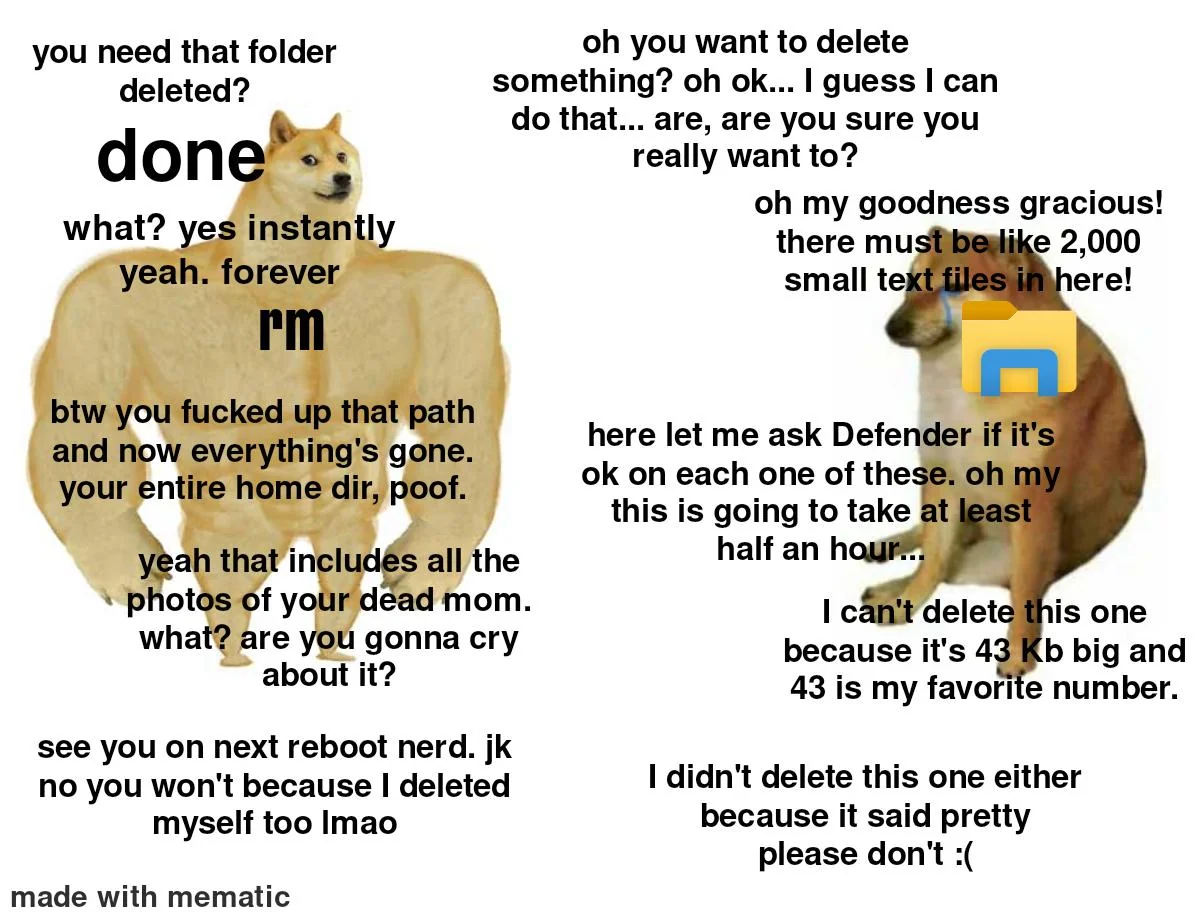this post was submitted on 22 Mar 2024
640 points (96.0% liked)
linuxmemes
21607 readers
667 users here now
Hint: :q!
Sister communities:
Community rules (click to expand)
1. Follow the site-wide rules
- Instance-wide TOS: https://legal.lemmy.world/tos/
- Lemmy code of conduct: https://join-lemmy.org/docs/code_of_conduct.html
2. Be civil
- Understand the difference between a joke and an insult.
- Do not harrass or attack members of the community for any reason.
- Leave remarks of "peasantry" to the PCMR community. If you dislike an OS/service/application, attack the thing you dislike, not the individuals who use it. Some people may not have a choice.
- Bigotry will not be tolerated.
- These rules are somewhat loosened when the subject is a public figure. Still, do not attack their person or incite harrassment.
3. Post Linux-related content
- Including Unix and BSD.
- Non-Linux content is acceptable as long as it makes a reference to Linux. For example, the poorly made mockery of
sudoin Windows. - No porn. Even if you watch it on a Linux machine.
4. No recent reposts
- Everybody uses Arch btw, can't quit Vim, and wants to interject for a moment. You can stop now.
Please report posts and comments that break these rules!
Important: never execute code or follow advice that you don't understand or can't verify, especially here. The word of the day is credibility. This is a meme community -- even the most helpful comments might just be shitposts that can damage your system. Be aware, be smart, don't fork-bomb your computer.
founded 2 years ago
MODERATORS
you are viewing a single comment's thread
view the rest of the comments
view the rest of the comments

the linux-file-deletion is used as a example for good software design. It has a very simple interface with little room for error while doing exactly what the caller intended.
In John Ousterhout's "software design philosophy" a chapter is called "define errors out of existence". In windows "delete" is defined as "the file is gone from the HDD". So it must wait for all processes to release that file. In Linux "unlink" is defined as "the file can't be accessed anymore". So the file is gone from the filesystem immediately and existing file-handles from other processes will life on.
The trade-off here is: "more errors for the caller of delete" vs "more errors due to filehandles to dead files". And as it turns out, the former creates issues for both developers and for users, while the later creates virtually no errors in practice.
No, no. Exactly what the user told it to do. Not what they intended. There's a difference.
Machines will always do what you tell them to do, as long as you do what they say.
What do they say?